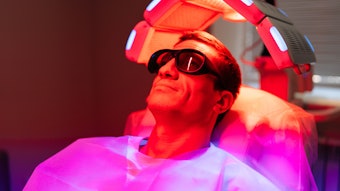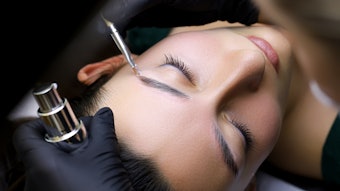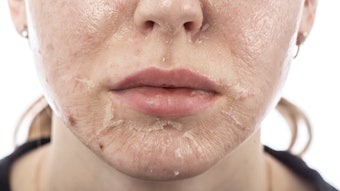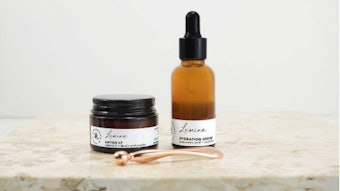
Offering another reason for proper sun care for the skin, a new study shows sunburn, as well as family history, may be a cause of rosacea.
New research suggests that people with the reddening skin condition rosacea tend to have a family history of the disease and a personal history of sunburns. Rosacea, a chronic condition that commonly affects the face and can also cause swelling and vascular abnormalities, affects roughly 14 million Americans. Its cause is unknown.
In a Boston-based study of 130 people, half with moderate to severe rosacea and half without, 34% of those with the disease reported having a relative who also had the skin disorder, whereas only about 10% of those without the disease had it in their family. The researchers also found that 44% of people with rosacea reported having had blistering sunburns at some time, compared with just more than 5% of the others.
"Even when we did a more sophisticated analysis of the data controlling for age and gender, we found these findings were statistically significant and confirmed our previous findings," Alexa Boer Kimball, MD, an associate professor of dermatology at Harvard Medical School in Boston, said. "Although these results are quite preliminary, they are important for future research as we start to explore these positive associations and their implications in controlling this condition."
Kimball presented the findings at the American Academy of Dermatology's annual meeting held recently in San Francisco.
Kimball said the research did not conclude whether sunburns contributed to the development of rosacea or whether people with rosacea just tended to sunburn because of their skin condition. However, she said, she advises people who have a family history of rosacea—especially children—to regularly use broad-spectrum sunscreen and use other sun protection measures.
In previous research, Kimball had suggested that being overweight might be associated with having rosacea, but she said that the new study found that both people with rosacea and those who did not have it had an average body mass index (BMI) of slightly above 26, putting them in the range considered overweight.
"Future studies should explore the possible connection between a higher BMI and rosacea, as excess weight could be found to be a contributing factor to the condition," she said.
More information
The National Rosacea Society has more about rosacea.
HealthDay News, March 10, 2009










